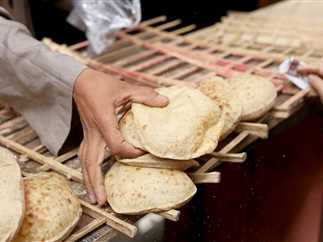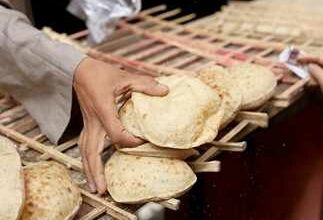
Egypt’s Minister of Supply and Internal Trade Ali al-Moselhi said that he met with the House of Representatives to discuss implementing a conditional monetary support system instead of subsidizing bread.
The conditional monetary support systems means that a card is provided to the citizen to control a sum of money, and that the matter is not dependent on a set number for the loaves of bread, he explained.
Moselhi added that the timing is not appropriate to implement the idea due to the change in the inflation rate and its rise, which will result in the inability to change the value of the subsidy.
During a phone-in with TV host Amr Adib on his show “al-Hekaya” (The Story), on MBC Masr, the minister explained that when prices and inflation stabilize, the number of bread loaves owed to each citizen can be transferred to an amount of money in the card.
He said that currently, in light of the decline in the value of the Egyptian pound by 30 percent and 40 percent in the last nine months, the value of the subsidy cannot be changed at this rate.
Bread serves as a pillar of Egypt
Bread was one of the three main demands – along with freedom and social justice – that Egyptian protesters chanted during the January 25 Revolution in 2011.
According to official estimates, Egyptians consume daily between 250 million and 275 million subsidized loaves of local bread.
Egypt is the largest importer of wheat in the world, which mainly goes to the production of bread.
The bread subsidy bill rose in the current fiscal year’s budget to about LE 93 billion after bread subsidies increased by more than LE 55 billion following the rise in global wheat prices.




